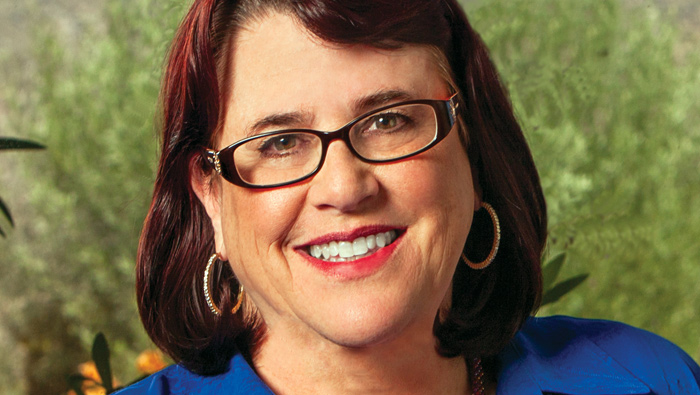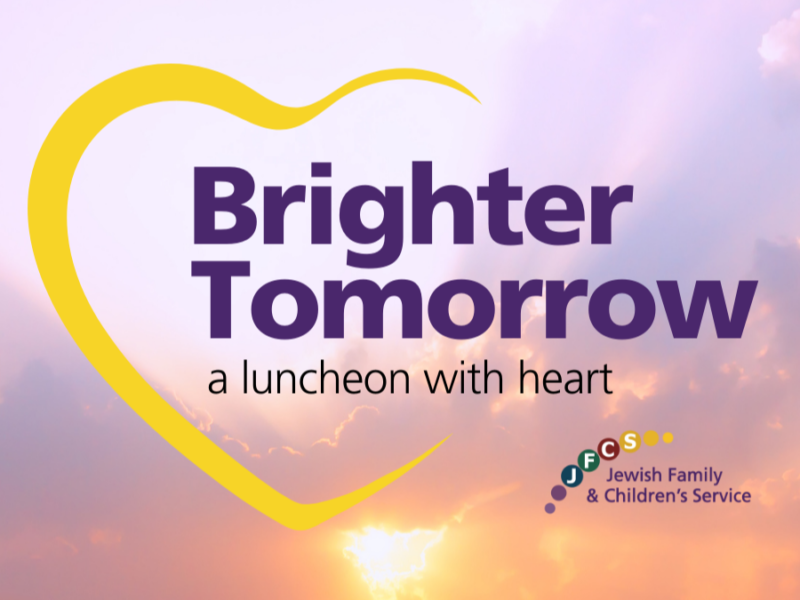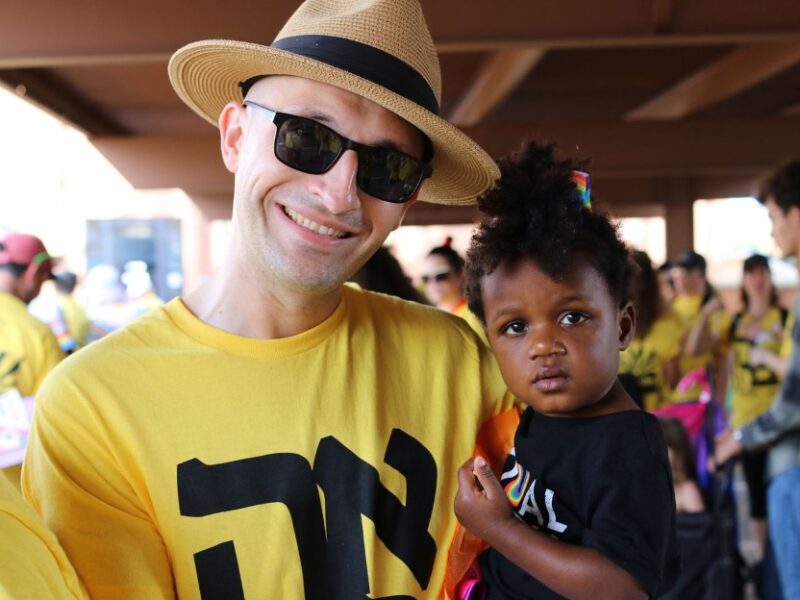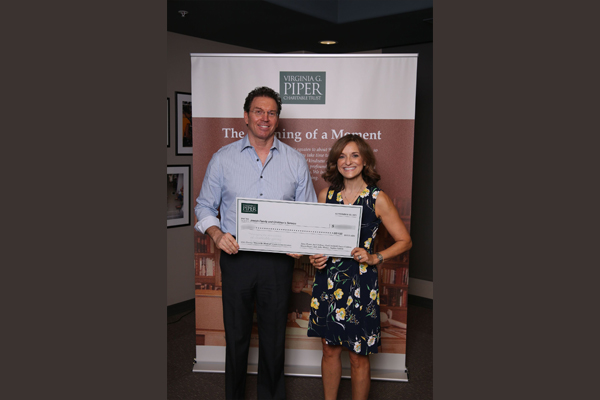If it’s better to give than to receive, then generational giving must be even better still.
Some of Judaism’s basic tenets are rooted in tzedakah (justice, but often translated as charity). To give beyond one generation into the next, to give to help sustain the Jewish people is a mitzvah in and of itself.
“You don’t have to stop giving because you stop living,” says Tracy Salkowitz, CEO of the Jewish Community Foundation of Southern Arizona, which she has led since 2012.
Giving back to the Jewish community and the community at large is at the core of what Tracy is as a person. As a community organizer for more than 30 years, she has used her passion and energy to help causes ranging from civil and religious liberties to reproductive rights.
“Generational giving starts with how we view ourselves and how we view our responsibility to the world around us,” says Tracy.
In terms of her own legacy, Tracy focuses on what she has contributed to her community and what she will contribute in the future, along with the lessons and values she is leaving her children. She says it is important to engage children, because they are the next generation. She and her husband, Richard Edwards, have four children between them: Melissa, 36; Sean, 35; Matt, 32, and Roshann, 25.
“Our Jewish tradition is very focused on leaving the world better than how we found it,” she says. “So part and parcel of that is first and foremost examining, reflecting and doing your part. Secondly, it’s passing on those values to your children, and there are a variety of ways to do that.”
Finding Judaism and giving back
Tracy grew up in a Conservative Jewish home, but one that was very liberal. Born in New York, she grew up in Los Angeles. With no formal Jewish education as a child, she eventually got involved in USY. It was during high school and college that she started on a self-exploration and study of Judaism that led her to spend a year in Israel. Upon her return to the states, she decided to work for the Jewish community. She worked for a variety of Jewish organizations from the Union of Orthodox Jewish Congregations of America in Los Angeles to Hillel, where she was an outreach worker.
“I did that for a year when the head of LA Hillel council said, ‘You need to go to graduate school.’ ” Tracy took heed and got her master’s in community social work.
Finding her dream job at the JCF came unexpectedly after a chance meeting with a friend at a bat mitzvah. “Let me tell you about this great job in case you know anybody,” her friend said. “I would love that job,” said Tracy, who had been away from working in the Jewish community for a while. “Running a foundation had always been a dream of mine, and running it in the Jewish community was ideal.” After moving to Tucson and working at the JCF she says, “From minute one, I felt so welcomed by this community, and Tucson is so warm and welcoming and I just love it. We are very happy transplants.”
A foundation based on a future of giving
The JCF is focused on funds for the future, which means its mission is close to Tracy’s own. “We were founded to secure the Jewish community into the future,” she says.
Not only does her work mirror her own values, it reflects how she has raised her daughter Roshann. “I wanted to bring her up to embrace her Judaism and her Jewish community,” she says. “It’s how we celebrate Judaism and our community and how we model for our children. One thing that I encourage is the old model of the tzedakah box, where kids would put in a little money every week. What I encourage for my daughter, and what I encourage donors to do, is that any donation my daughter wants to make or has made in her young life I will match. It’s a matter of having a daily framework that honors contribution, honors our role of being a partner and expresses our ongoing appreciation for the blessings we have.”
From volunteering at senior centers on Christmas to delivering meals to AIDS patients and participating in a variety of civil rights marches, throughout the years Tracy and her family have always been involved and participated in volunteerism. “Engaging and involving our children at whatever age they are promotes the cycle of philanthropy or involvement and engagement,” she says.
Into the future
At the JCF, Tracy and staff work with families who come in to work on their legacy plans. Many of them want to continue to support causes they care about after they are gone. One of the funds created at the JCF is the Emerging and Emergency Jewish Needs Fund, created in October 2012. It is specifically geared toward helping the Jewish community in times of emergencies.
Typically, when people are ready to talk about an endowment fund, they come into the JCF, tell their story and discuss what is important for them. “We hear wonderful stories, then through conversation donors will ask, ‘Is there any way to involve my children,’ ” Tracy says. “We don’t have a major initiative on generational philanthropy; it happens naturally – organically if you will.”
Other programs that promote engagement include a new Birthright program and the new PJ Library. Literally referring to pajamas, the PJ Library provides a book once a month to Jewish families with children at no cost to them. Donors can set up a plan where money from their estate can support these types of programs whereby funds will go in perpetuity and always be available to the Jewish community.
Tracy involved daughter Roshann through her own legacy plan, which many donors do with their children. “I set up a fund for my daughter so she would have access to funds every year that she could direct.”
When people set up their endowment funds, many donors want their children to be advisors on the fund, so “what we encourage donors to do is to have their endowment fund provide annual money for their children’s philanthropy through the vehicle of a donor-advised fund,” Tracy says. “So how it would work is I set up an endowment fund and after my death my will provides the funds that actually fund the endowment fund. Every year a portion of interest goes to the causes I identify.”
Giving back should be something that comes from the heart. Initially many give because it is something expected of them. “I give back because I want to; it honors me, it makes me feel good when I can help the community,” Tracy says.
When it comes to the JCF, she says, “We are here to help support the perpetuation of the Jewish people. It goes hand in hand with continuing to invest in our community.
“Thinking about how you want to be remembered and being able to contribute for years to come even after your lifetime is an extraordinary gift.”
More importantly, generational giving shares values in an intentional way by allowing children to decide where to contribute in the community. “Generational giving is imbuing values of tzedakah from generation to generation.”
For more information, see jcftucson.org.






